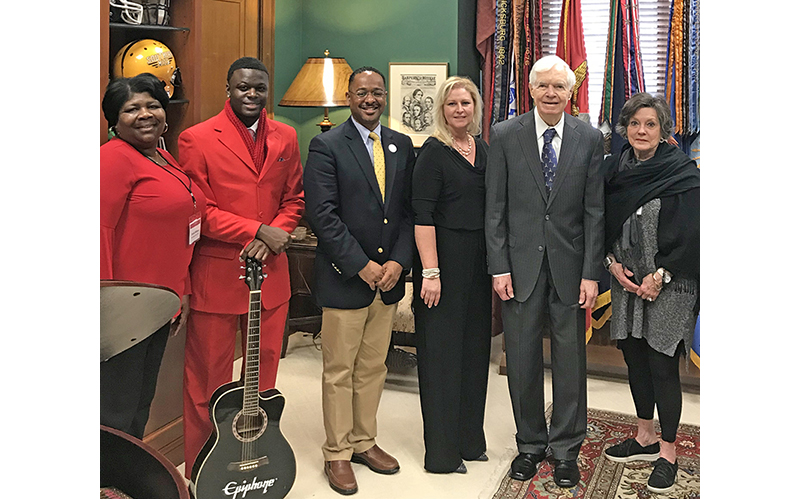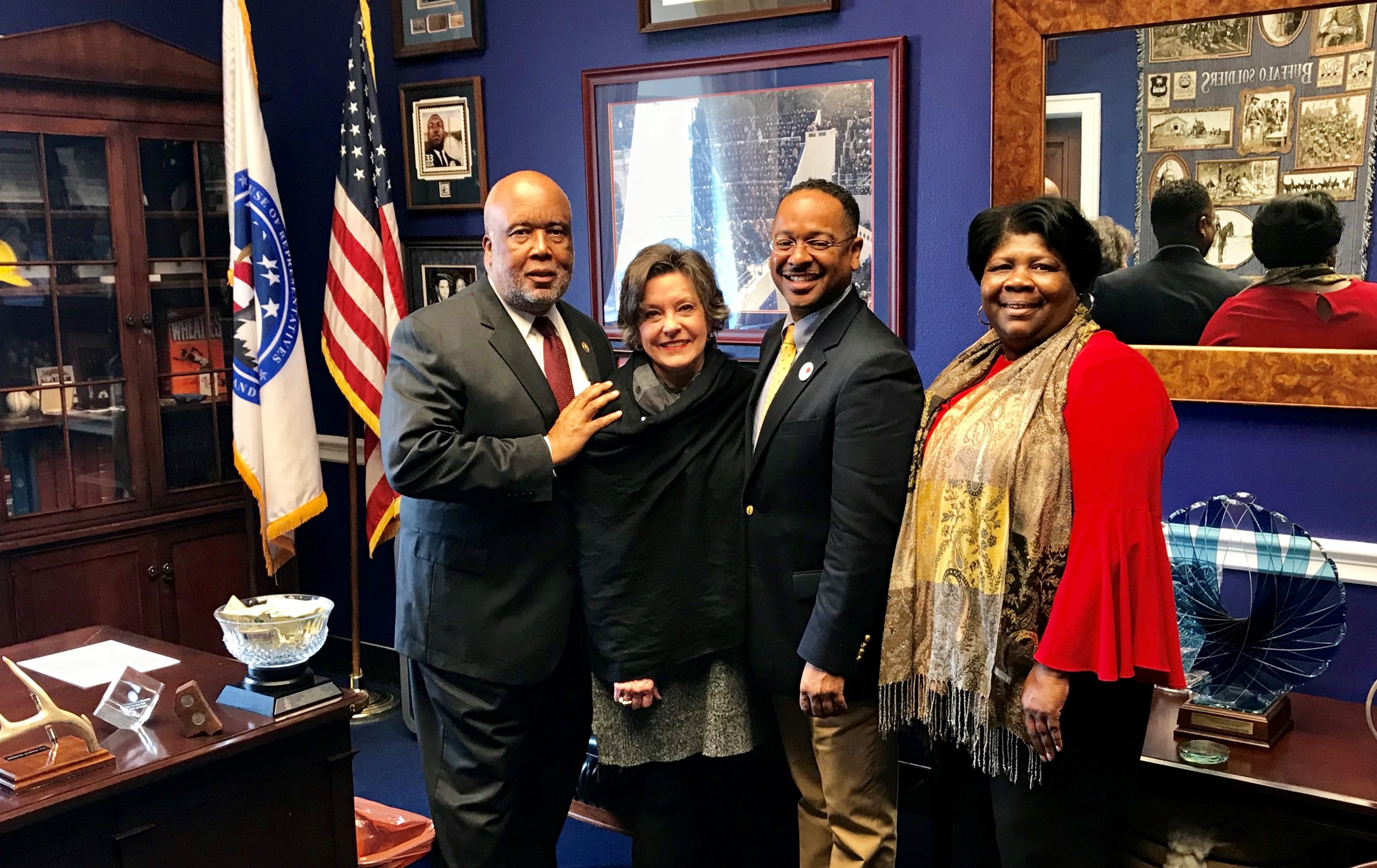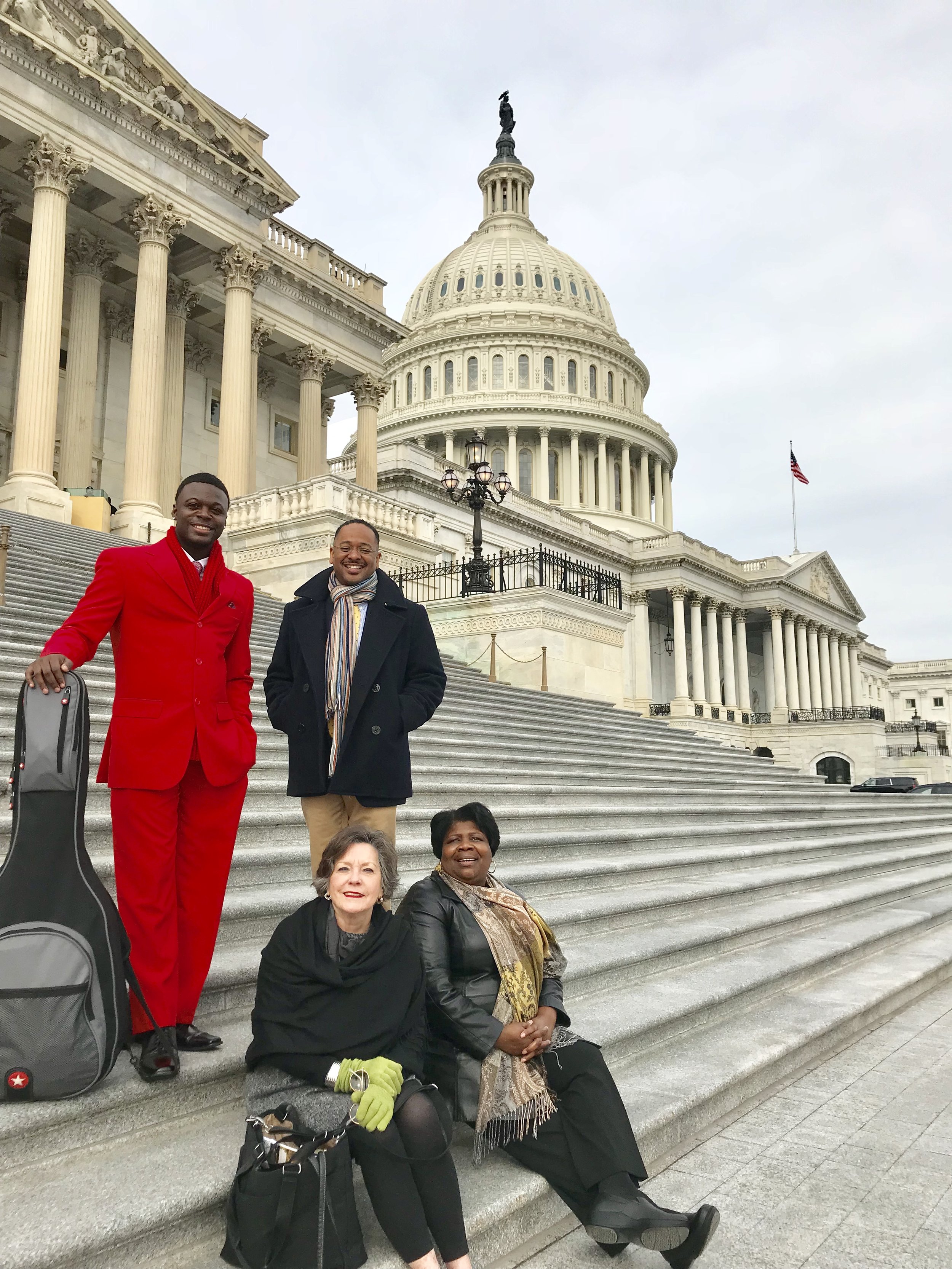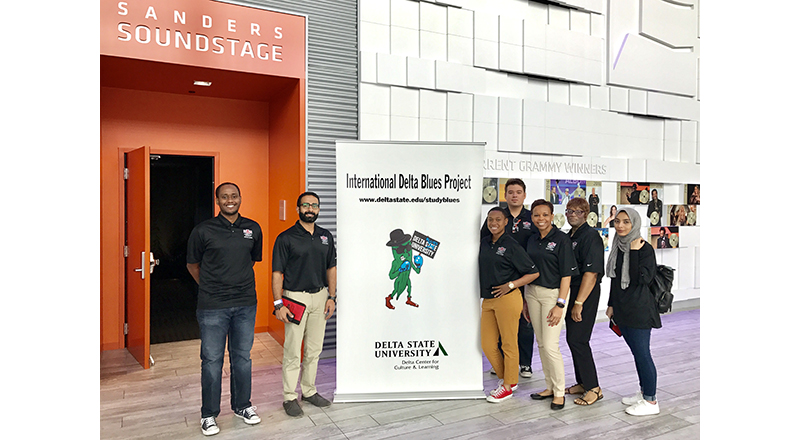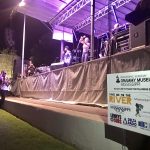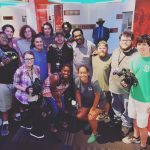“Most Southern” Institute participants view a Mississippi Blues Trail marker in Scott, Mississippi.
The National Humanities Alliance recently recognized The Delta Center for Culture and Learning’s “Most Southern Place on Earth” Institute as a one of a select group of high-impact programs funded by the National Endowment for the Humanities.
“Most Southern” is featured on the alliance’s NEH For All website, www.nehforall.org, which highlights impacts of the NEH across the United States.
“It is our great privilege to feature the Delta Center on NEH for All, a website that showcases outstanding NEH-funded work in every state,” said Dr. Stephen Kidd, executive director of the National Humanities Alliance. “The National Endowment for the Humanities funds thousands of projects across the country. Among these, the Delta Center’s work with The Most Southern Place on Earth is truly exemplary.”
On the website, “Most Southern” is noted for having impacts in several key measurement areas, including Enriching K-12 Education; Providing Lifelong Learning Opportunities for Diverse Audiences; Facilitating Community Dialogue; Fostering Local Tourism Economies; and Promoting Civic Education.
The alliance also notes that “Most Southern” is part of the Delta Center’s larger work managing the Mississippi Delta National Heritage Area.
“Through Most Southern, The Delta Center attracts K-12 educators from throughout the country to the Mississippi Delta,” said Dr. Rolando Herts, director of The Delta Center and executive director of the MDNHA. “They spend a full week here learning about the region’s diverse cultural heritage, and they take those lessons home to their school communities. These educational and cultural heritage tourists become heritage area ambassadors who tell our stories nationwide. Some of them even come back with student groups and family members.”
Summer 2018 will be the ninth year that the NEH has funded “Most Southern.” Total funding received since the program’s inception is over $1.5 million.
Over 500 K-12 educators have completed the workshops. The program continues to generate considerable demand among the nation’s top K-12 educators, including award-winning principals, librarians, and National Board Certified teachers. This month, The Delta Center received over 300 applications competing for 72 slots to participate in the June and July 2018 sessions.
“The Delta Center has brought hundreds of K–12 teachers to the Mississippi Delta and provided them with an intellectually-rigorous educational experience that helps them understand and become ambassadors for the region’s rich cultural heritage,” said Kidd. “By helping newcomers explore the region’s cultural heritage sites, the Delta Center boosts its local economy. At the same time, the quality teaching practices the Delta Center fosters have had a deep impact on schools across our nation.”
The National Humanities Alliance Foundation advances the humanities by conducting and supporting research on the humanities and communicating the value of the humanities to a range of audiences including elected officials and the general public. For more information, visit https://www.nhalliance.org/.
The mission of The Delta Center is to promote greater understanding of Mississippi Delta culture and history and its significance to the world through education, partnerships and community engagement. The Delta Center serves as the management entity of the MDNHA and is the home of the International Delta Blues Project and the NEH “Most Southern Place on Earth” Institute. For more information, visit http://deltacenterdsu.com/.



